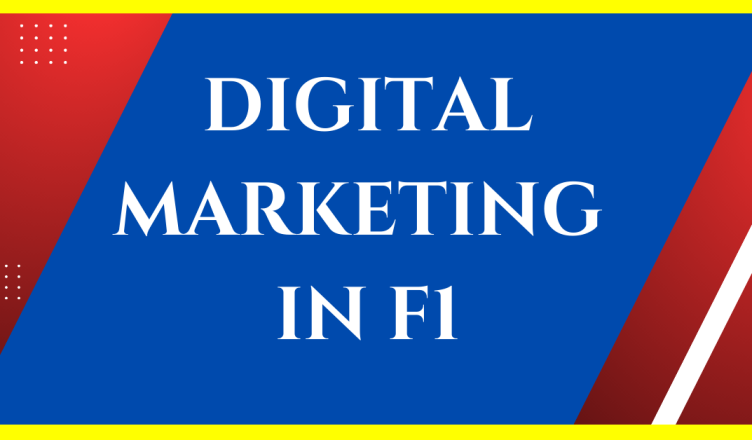In today’s digital era, where technology has revolutionized the way we communicate and engage with the world, digital marketing has become a driving force for businesses across various industries.
Formula 1, the pinnacle of motorsport, is no exception.
In this article, we will delve into the world of digital marketing in Formula 1, exploring its significance, strategies, successful campaigns, challenges, and future trends.
Overview of Formula 1
Formula 1, with its rich history and high-speed action, captivates millions of fans worldwide.
From its humble beginnings in the 1950s to the global phenomenon it is today, Formula 1 has established a massive fan base that eagerly follows every race.
With an audience spanning continents and demographics, digital marketing plays a pivotal role in reaching and engaging with fans like never before.
Digital Transformation in Formula 1
As technology continues to advance, Formula 1 has embraced the digital transformation, shifting from traditional marketing methods to harnessing the power of digital platforms.
The introduction of digital marketing has revolutionized fan engagement, allowing for real-time interactions and a deeper connection between teams, drivers, and supporters.
With digital marketing, Formula 1 has extended its reach and brought the sport closer to its fans.
Key Digital Marketing Strategies in Formula 1
-
Social Media Marketing
Formula 1 teams and drivers have leveraged platforms like Facebook, Instagram, Twitter, and YouTube to engage with fans.
From live race updates and exclusive behind-the-scenes content to interactive Q&A sessions and fan polls, social media has become the heartbeat of Formula 1’s digital marketing strategy.
-
Content Marketing
Compelling videos, articles, and podcasts have become essential tools in capturing the attention of Formula 1 enthusiasts.
Teams and drivers showcase their personalities, provide insights into the sport, and offer exclusive access to their world, fostering a sense of intimacy and building strong connections with fans.
-
Influencer Marketing
Collaborating with popular influencers and drivers has become a powerful strategy in Formula 1’s digital marketing arsenal.
By partnering with influencers who share the same passion for the sport, teams and drivers can tap into their reach and credibility, expanding their audience and enhancing brand awareness.
-
Data-Driven Marketing
Data analytics plays a crucial role in understanding fan behavior and preferences.
By leveraging data, Formula 1 can personalize marketing campaigns, tailoring content and offers to specific target groups.
This data-driven approach helps teams and drivers build stronger relationships with their fans and deliver relevant experiences.
Case Studies: Successful Digital Marketing Campaigns in Formula 1
-
Mercedes-AMG Petronas Formula One Team’s #DrivenByEachOther campaign
Through a powerful social media campaign, Mercedes-AMG Petronas engaged fans by sharing inspiring stories of teamwork, dedication, and perseverance.
This campaign encouraged fans to participate and share their own stories, creating a sense of unity and a strong community around the team.
-
Red Bull Racing’s Engaging Social Media Presence
Red Bull Racing has mastered the art of captivating their audience through their dynamic and innovative social media content.
By showcasing exhilarating stunts, interactive challenges, and behind-the-scenes glimpses, they have built a loyal following that eagerly awaits their every update.
-
McLaren’s Fan-Centric Approach Through Content and Community Building
McLaren has adopted a fan-centric approach, delivering high-quality content that focuses on their supporters’ passions and interests.
They actively foster a sense of community by encouraging fan-generated content and organizing exclusive events, creating a bond that goes beyond the racetrack.
Challenges and Opportunities in Digital Marketing for Formula 1
While digital marketing has opened new avenues for growth, there are challenges that need to be addressed.
Maintaining a balance between traditional and digital marketing strategies, ensuring data privacy and security, and leveraging emerging technologies like virtual reality and augmented reality present both obstacles and opportunities for Formula 1’s digital marketing landscape.
Future Trends in Digital Marketing for Formula 1
The future of digital marketing in Formula 1 holds exciting possibilities.
Integration of e-commerce and ticketing platforms will offer fans seamless experiences, while artificial intelligence will enable personalized fan interactions and recommendations.
Furthermore, the growth of e-sports and virtual racing will expand Formula 1’s digital footprint, attracting new audiences and engaging with fans in innovative ways.
Conclusion
Digital marketing has become a driving force behind the success of Formula 1 in the digital age.
By embracing strategies such as social media marketing, content marketing, influencer marketing, and data-driven marketing, Formula 1 teams and drivers have established stronger connections with fans worldwide.
As Formula 1 continues to evolve, it will be crucial to adapt to emerging trends and overcome challenges to ensure a thriving digital marketing landscape that enhances the sport’s reach and engagement with its passionate fan base.
